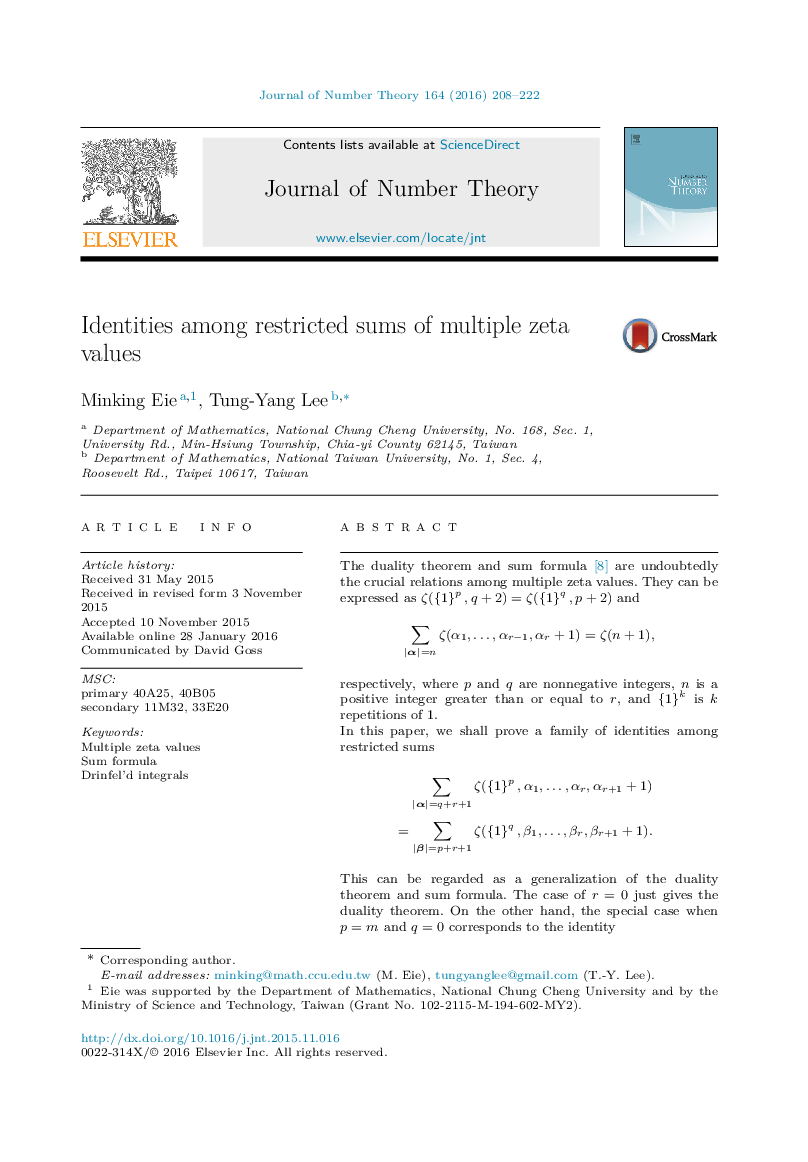| Article ID | Journal | Published Year | Pages | File Type |
|---|---|---|---|---|
| 4593377 | Journal of Number Theory | 2016 | 15 Pages |
The duality theorem and sum formula [8] are undoubtedly the crucial relations among multiple zeta values. They can be expressed as ζ({1}p,q+2)=ζ({1}q,p+2)ζ({1}p,q+2)=ζ({1}q,p+2) and∑|α|=nζ(α1,…,αr−1,αr+1)=ζ(n+1), respectively, where p and q are nonnegative integers, n is a positive integer greater than or equal to r , and {1}k{1}k is k repetitions of 1.In this paper, we shall prove a family of identities among restricted sums∑|α|=q+r+1ζ({1}p,α1,…,αr,αr+1+1)=∑|β|=p+r+1ζ({1}q,β1,…,βr,βr+1+1). This can be regarded as a generalization of the duality theorem and sum formula. The case of r=0r=0 just gives the duality theorem. On the other hand, the special case when p=mp=m and q=0q=0 corresponds to the identityζ({1}m+r,2)=∑|β|=m+r+1ζ(β1,…,βr,βr+1+1), which is equivalent to the sum formula via the duality ζ({1}m+r,2)=ζ(m+r+2)ζ({1}m+r,2)=ζ(m+r+2). Moreover, we also provide a vector version of such identities.
